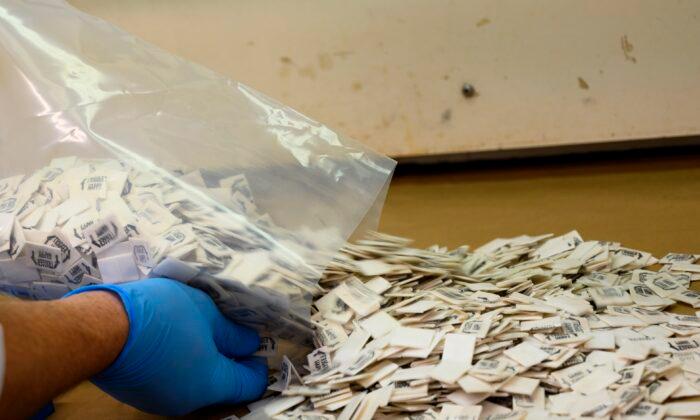Despite the Chinese regime banning fentanyl and its analogs in 2019, China remains the primary source of illicit fentanyl and fentanyl-related substances being trafficked into the United States, according to a new report by a U.S. congressional advisory body.
Those evasion efforts have been enabled by the Chinese regime’s “weak supervision and regulation” of its chemical industry, the report states.
The findings come as U.S. agencies have continued to grapple in recent years with the country’s devastating opioid crisis, fueled by a surge in the use of fentanyl, a synthetic opioid 50 times more potent than heroin, and its variants.
Chinese Traffickers Embrace Mexican Cartels
Since Beijing’s ban on fentanyl in 2019, there has been a decline in the amount of finished fentanyl shipped directly from China—typically by mail—into the country, the report states, but illicit fentanyl has remained widely available in the United States.To evade authorities, Chinese traffickers have pivoted their operations to focus mainly on producing and shipping chemical precursors to Mexico, the USCC report states, citing the U.S. Drug Enforcement Administration (DEA). This also means Chinese traffickers have increased their cooperation with Mexican cartels, particularly with the country’s two most powerful crime syndicates, the Sinaloa cartel and the Jalisco New Generation cartel.
The cartels control “pill mills” in Mexican cities, which manufacture finished fentanyl from the China-sourced precursors. They then smuggle the drug into the United States.
“The growing involvement of Mexican cartels and advanced money laundering schemes have exacerbated the problem,” the report reads.
Limited US–China Cooperation
While U.S. and Chinese authorities have worked together to dismantle some illegal fentanyl networks, cooperation between the two sides “remains limited on the ground,” according to the report.“There remain significant gaps in U.S.-China antidrug cooperation, especially in enforcement and criminal prosecution.”
Chinese regulators continue to delay requests to access potential sites where precursors are made, according to the USCC. The delay often takes days, “allowing any illegal operation to vacate or clean up the premises.”
During the investigation of the Gan case, the DEA didn’t receive any support from its Chinese counterpart, despite multiple informal requests for assistance, the report states.
It also cites retired DEA agent Jeffrey Higgins, who told the USCC in 2018 that he felt that “China is merely seeking to create the appearance of cooperating with U.S. officials, while not enacting any reforms.”
The DEA and U.S. State Department didn’t respond to requests for comment by press time.





